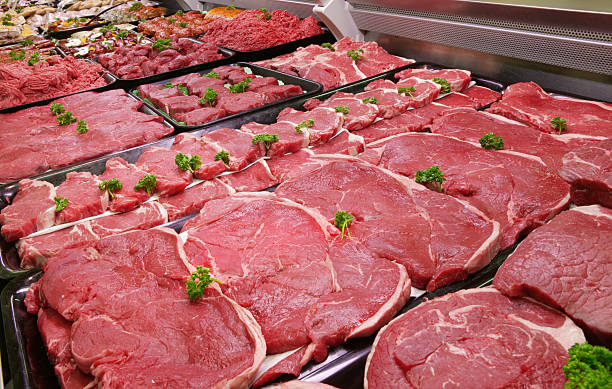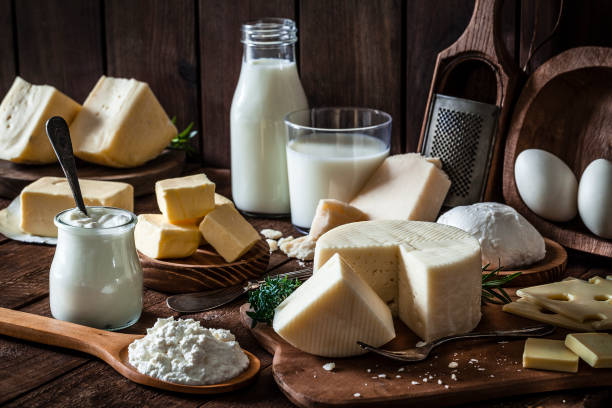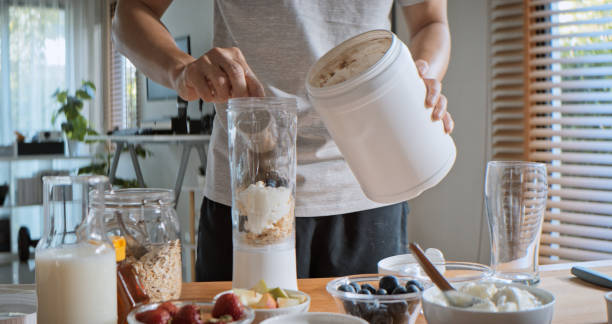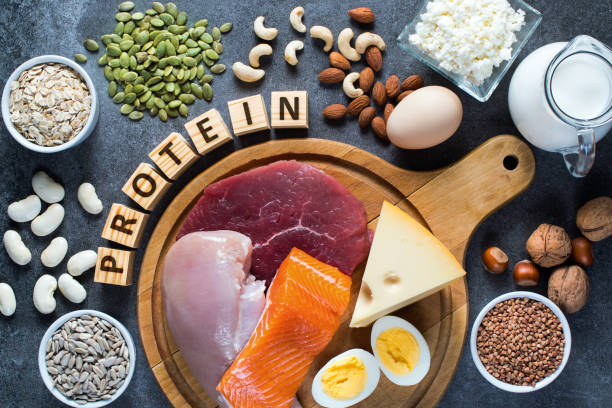Building muscle requires more than just lifting weights. Your body needs the right nutrition, especially protein, to repair and grow muscle tissue. Protein provides the essential amino acids that your muscles use to recover after exercise. If you want to get stronger and build lean muscle, you need to focus on eating high-protein foods.
In this article, we will explore the best high-protein foods to support muscle growth in men. We’ll also look at how much protein you need and the best times to eat it.
Why Protein Is Important for Muscle Growth
When you work out, your muscles experience tiny tears. Your body repairs these tears using amino acids from protein, making the muscle fibers bigger and stronger. If you don’t eat enough protein, your muscles won’t recover properly, and you may struggle to build strength.
The amount of protein you need depends on your activity level and weight. Experts recommend consuming between 0.6 to 1 gram of protein per pound of body weight for muscle growth. That means a 180-pound man should aim for 108 to 180 grams of protein per day.
Now, let’s dive into the best high-protein foods to help you reach your muscle-building goals.
1. Lean Meats

Chicken Breast
Chicken breast is one of the best protein sources for muscle growth. A 3.5-ounce (100g) serving provides about 31 grams of protein with very little fat. It’s easy to cook, versatile, and can be paired with different sides to create healthy meals.
Lean Beef
Beef is packed with protein and essential nutrients like iron and B vitamins. A 3.5-ounce (100g) serving of lean beef contains 26 grams of protein. Choose lean cuts like sirloin or top round to keep your fat intake in check.
Turkey Breast
Like chicken, turkey is a lean protein source that helps build muscle. It has about 29 grams of protein per 3.5-ounce serving and is low in fat. Turkey is also rich in zinc, which supports muscle recovery.
2. Fish and Seafood
Salmon
Salmon is not only high in protein but also packed with omega-3 fatty acids. A 3.5-ounce serving provides 25 grams of protein and helps reduce muscle inflammation after workouts.
Tuna
Tuna is another excellent source of lean protein, with 30 grams per 3.5-ounce serving. It’s low in fat and can be eaten fresh or canned. Add it to salads, sandwiches, or wraps for a high-protein meal.
Shrimp
Shrimp is a low-calorie, high-protein food. A 3.5-ounce serving provides 24 grams of protein with almost no fat. It’s a great option for adding variety to your diet.
3. Eggs and Dairy

Eggs
Eggs are one of the most affordable and effective protein sources. One large egg contains 6 grams of protein and essential amino acids needed for muscle repair. The yolk also provides healthy fats and vitamins that support overall health.
Greek Yogurt
Greek yogurt is a high-protein dairy product that contains 20 grams of protein per 7-ounce serving. It also has probiotics that support digestion. Choose plain Greek yogurt to avoid added sugars.
Cottage Cheese
Cottage cheese is an excellent source of casein protein, which digests slowly and helps prevent muscle breakdown overnight. A half-cup serving contains 14 grams of protein.
Milk
Milk is a natural protein source with 8 grams of protein per cup. It also contains calcium, which supports bone health, making it a great post-workout drink.
4. Plant-Based Proteins
Lentils
Lentils are rich in protein and fiber. One cup of cooked lentils provides 18 grams of protein. They are also packed with iron and other nutrients that help with energy production.
Chickpeas
Chickpeas, or garbanzo beans, contain 15 grams of protein per cup. They can be added to salads, soups, or made into hummus for a tasty snack.
Quinoa
Quinoa is a complete protein, meaning it contains all nine essential amino acids. One cup of cooked quinoa has 8 grams of protein. It’s also high in fiber, making it a great addition to meals.
Tofu and Tempeh
Tofu and tempeh are soy-based protein sources. A 3.5-ounce serving of tofu provides 10 grams of protein, while tempeh contains 19 grams. These are great options for vegetarians and vegans.
5. Protein Supplements

If you struggle to get enough protein from food, supplements can help. Here are the best options:
Whey Protein
Whey protein is a fast-digesting protein powder that helps with muscle recovery. A typical scoop contains 20-25 grams of protein. It’s great for post-workout shakes.
Casein Protein
Casein protein digests slowly, making it a good option before bed. It helps prevent muscle breakdown while you sleep.
Plant-Based Protein Powders
For those who don’t consume dairy, plant-based protein powders made from peas, rice, or hemp are excellent alternatives. They provide around 15-25 grams of protein per serving.
Best Times to Eat Protein
To maximize muscle growth, you should spread your protein intake throughout the day. Here’s a simple breakdown:
- Breakfast: Start your day with eggs, Greek yogurt, or a protein smoothie.
- Lunch: Include lean meats, fish, or plant-based proteins with vegetables and whole grains.
- Dinner: Eat a balanced meal with protein, healthy fats, and carbs.
- Post-Workout: Have a protein shake or a high-protein meal within 30-60 minutes after exercising.
- Before Bed: Eat slow-digesting protein like casein (cottage cheese or milk) to support overnight muscle repair.
Final Thoughts
Eating enough protein is essential for building and maintaining muscle. The best high-protein foods for muscle growth include lean meats, fish, dairy, plant-based proteins, and supplements. Make sure to consume protein consistently throughout the day to support recovery and strength gains.
If you focus on eating these muscle-building foods and combine them with a solid workout plan, you’ll see great results. Start adding these high-protein options to your meals today and fuel your body for success!

